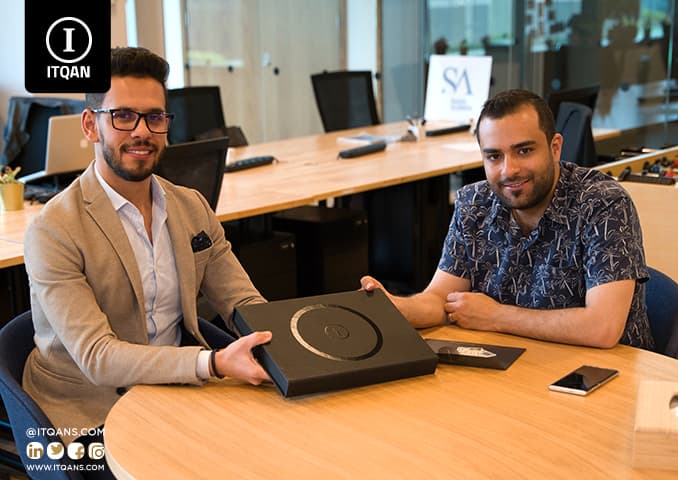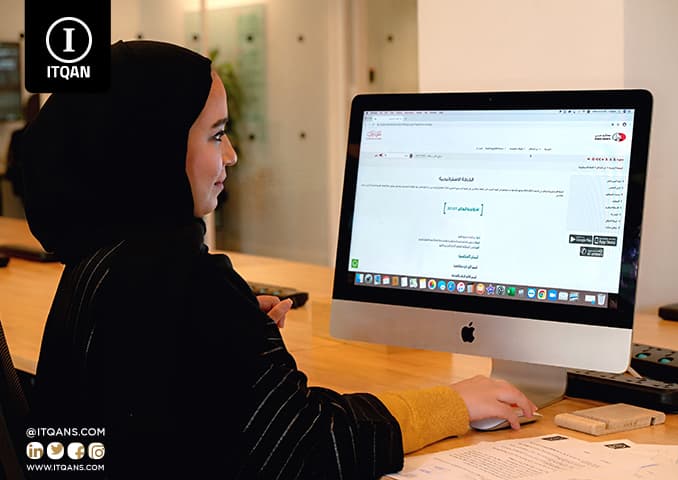Establishing a company in the UAE represents a great opportunity for businesses wishing to take advantage of the dynamic and advanced business environment that the country offers. The UAE is considered a vital economic center in the Middle East, as it provides modern infrastructure, an investment-friendly legislative environment, and simplified regulatory procedures. Starting a business in the UAE requires a good understanding of incorporation requirements, including choosing the appropriate free zone, determining the type of legal entity, and obtaining the necessary business licenses. Through cooperation with specialized consulting companies such as “Itqan” Company, the incorporation process can be simplified and compliance with all local laws and regulations can be ensured, which contributes to achieving success and sustainable growth in the UAE market. Through this article, we will talk about how to establish a company in the Emirates .

جدول المحتوى
ToggleHow to establish a company in the Emirates
To establish a company in the UAE, there are steps and procedures that must be followed to ensure compliance with local laws and regulations. Here is a general guide to establishing a company in the UAE:
- Determine the type of business activity you wish to engage in, whether it is commercial, industrial, service, or other. The specific activity must be permitted in the UAE.
- Choosing the legal structure Choose the appropriate legal structure for your company, such as a limited liability company (LLC), a branch of a foreign company, and other types of companies.
- Open a bank account in the company’s name and deposit the required capital. You will receive a capital deposit certificate.
- Submit all required documents to the Department of Economic Development to obtain the final commercial license. The license will be issued after verifying the documents and approving the application.
- If you plan to hire foreign employees, you will need to obtain work visas for them. Residence visas can be applied for for company founders and partners as well.
- After obtaining a business license, you may need to register with the local Chamber of Commerce to obtain membership and benefit from its services.
- If a company exceeds a specified revenue threshold, it must register for value added tax (VAT) and comply with tax requirements.
- After completing all the steps and obtaining the necessary licenses, you can officially start business operations.
- Choose a suitable business name and check its availability. The trade name must be unique, not registered to another company, and consistent with the type of business activity.
- Apply to the Department of Economic Development (DED) to obtain initial approval of the trade name and activity.
- Choose a suitable location for your company and obtain a lease for the office or facility. The site must comply with the requirements of the Department of Economic Development.
- Some business activities may require additional approvals from other regulatory bodies such as the Ministry of Health or the Securities and Commodities Authority.
- Prepare the required documents such as:
- Copies of passports of founders and partners
- Business plan
- The company’s articles of incorporation and articles of association
- Lease contract for the headquarters.
By working with a consulting firm like Itqan, you can facilitate these procedures and ensure full compliance with local laws and regulations, helping you successfully establish your company in the UAE.
Documents required to establish a company in the Emirates
To establish a company in Dubai , the required documents vary based on the type of company, legal structure, type of business activity and location (inside or outside a free zone). However, there is a general set of documents that are often required. Below is a list of common papers required:
- Copies of passports : Copies of passports of all founders, partners, shareholders and directors.
- Personal photos : Recent personal photos of both partners and shareholders.
- Company establishment application form : Fill out the company establishment application form provided by the Department of Economic Development (DED) or the competent authority in the free zone.
- Lease Contract : A lease contract for the commercial headquarters from which the company will be operated. The rental contract must be certified by the relevant authorities.
- Articles of Association and Articles of Association : Articles of Association and Articles of Association (for limited liability companies and joint stock companies). The contract must be notarized by a notary.
- Approval of the Department of Economic Development : Approval of the Department of Economic Development on the trade name and activity.
- No Objection Certificate (NOC) : If one of the partners or shareholders is an employee of another company in the UAE, a NOC from their current employer may be required.
- Business plan : A business plan that includes information about the company, activity, target market, and strategy.
- Authorized capital : Certificate of deposit of capital in a local bank, if any, based on the type of company and activity.
- Approval of government agencies : Some activities require additional approvals from competent government agencies, such as the Ministry of Health, the Ministry of Economy, or the Telecommunications Regulatory Authority.
- Criminal Record : A certificate of good standing (criminal record) may be requested for founders and partners.
- Previous trade license : If one of the partners owns another company in the UAE, a copy of that company’s trade license may be required.
For foreigners and foreign companies:
- Documents certified by the embassy : It may be necessary to authenticate official documents from the UAE embassy in the country of origin, such as the articles of association and articles of association.
- Board of Directors Decision : A decision by the board of directors of the foreign company to establish a branch in the Emirates, and to authorize a specific person to represent the company.
- Investment license: If the establishment of the company requires it, such as if the company is affiliated with a foreign company.
These are the basic documents required, but keep in mind that requirements may vary based on the emirate, free zone and type of activity. It is always advisable to cooperate with a consulting company such as “Itqan” to ensure that all correct documents are submitted and in full compliance with local laws and procedures.
Economy in Dubai
In the past, Dubai’s economy was mainly based on trade, as the city imported pearls and sold fish and other products. Over time, the discovery of oil played a pivotal role in transforming the economy, which contributed to significantly raising the standard of living. The United Arab Emirates has witnessed a rise in individual income and prosperity throughout the country, making it one of the richest Arab countries. This economic boom has attracted many investors and foreigners who want to invest their money and engage in business activities. Which enhances the chances of success of commercial projects implemented in Dubai.
As Dubai’s economy developed, the city became a global center for trade, finance and tourism. Itqan plays a pivotal role in helping companies and investors benefit from this economic growth. By providing comprehensive consulting services, “Itqan” contributes to facilitating the process of establishing companies, providing legal and administrative support, and ensuring compliance with all local laws and regulations. Thanks to the company’s extensive experience, foreign and local investors can explore the diverse investment opportunities in Dubai with ease and confidence. This cooperation enhances the success of new projects and increases opportunities for growth and prosperity in the UAE market.
Investing in Dubai
Investing in Dubai offers tremendous opportunities due to the city’s thriving business environment, advanced infrastructure, and strategic location. Here are some key points for investing in Dubai:
- Economic Environment : Dubai is considered one of the fastest growing cities in the world, and aims to be a global center for business and trade. The government’s supportive policies contribute to providing an encouraging business environment, with tax incentives and customs exemptions in many free zones.
- Investment sectors : There are many promising sectors for investment in Dubai, including technology, real estate, tourism, hospitality, and financial services. The city also offers opportunities in creative and innovative industries.
- Free Zones : Dubai provides a group of free zones that offer multiple benefits such as tax and customs exemptions, and full ownership by foreigners. Some of the popular free zones include Dubai Media City, Dubai Internet City, and Jebel Ali Free Trade Zone (JAFZA).
- Infrastructure : Dubai is characterized by an advanced infrastructure that includes seaports, airports, and a modern road network, which facilitates logistical movement and trade. The city is constantly investing in improving its infrastructure to support economic growth.
- Legal Compliance : It is essential to understand the legal and business requirements in Dubai. It is recommended to work with local consultants or consulting companies such as “Itqan” to ensure compliance with all local laws and regulations, and to obtain the necessary licenses.
- Financing opportunities : Dubai provides a range of financing options for investors, including local and international banks, and investment companies. These options can be useful for providing the capital needed to start and expand a business.
- Organization and procedures : Procedures for starting a business in Dubai may be complex, but cooperation with specialized consultants can contribute to accelerating and simplifying the process. This includes registering, obtaining licenses, and meeting legal requirements.
- Networking : Getting involved in the local business community can be beneficial. Participating in trade events and exhibitions, and joining chambers of commerce, can open doors to new opportunities and provide valuable business connections.
In short, investing in Dubai can be very rewarding if it is well planned and the city’s economic and business environment is understood.
Conditions for starting a business in the UAE
To start a business in the UAE, there are a set of conditions and procedures that must be adhered to to ensure compliance with local laws and regulations. Here are the most important terms and requirements:
- Choosing a business : You must determine the type of business activity you want to practice, whether commercial, industrial, or service. This will affect the type of business license you will need.
- Choosing the legal structure : You must choose the legal structure of the company, such as a limited liability company (LLC), a public joint stock company, a sole proprietorship, or a branch of a foreign company.
- Choosing a trade name : A suitable trade name must be chosen that is compatible with the conditions of the Department of Economic Development in the relevant emirate. The name must not be registered to another company, and must be consistent with the type of business activity.
- Registration with the Department of Economic Development : Registration with the Department of Economic Development (DED) in the relevant emirate to obtain a commercial license. The process involves submitting an application with company and business details.
- Obtaining the necessary approvals : Some commercial activities require additional approvals from certain government agencies, such as the Ministry of Health, the Financial Regulatory and Supervision Authority, or local authorities.
- Capital : The required capital must be determined based on the type of business activity and the type of company. In some cases, the capital must be deposited in a local bank and proof of the deposit must be shown.
- Required documents : A set of documents must be submitted, such as passports of the founders, copies of their signatures, a business plan, and the company’s articles of incorporation.
- Work location : The work location must be determined and a lease contract for the headquarters must be obtained. The site must comply with the requirements of the Department of Economic Development and the relevant bodies.
- Visas and Residencies : If you plan to hire foreign employees, you will need to obtain work visas for them. Some types of companies or activities may require residence visas for company owners.
- Chamber of Commerce Registration : Registration with the local Chamber of Commerce can be a requirement for some businesses to obtain chamber membership and participate in its events.
- Obtaining a commercial license : After completing all the required conditions and documents, a commercial license is issued that authorizes the company to begin practicing its activity.
- Tax Compliance : You must comply with local tax laws, including value-added tax (VAT) if the company qualifies.
Therefore, our company works to help you terminate all these conditions. It also helps you own a business and complete all the requirements for establishing it, and it also helps you obtain a business license. Very easy

Tips to start investing in the UAE
First, you must understand the local market before starting any investment. It is necessary to understand the UAE market and its needs. Conduct a comprehensive feasibility study to analyze the opportunities and challenges in the sector you wish to invest in. Here are the rest of the important tips to start investing in the UAE:
- Choosing the appropriate free zone : The UAE contains many free zones that offer special advantages to investors. Choose the region that suits your type of business, as some regions offer tax incentives and customs exemptions.
- Expert consultation : Working with local consulting companies such as “Itqan” can help you understand legal and administrative procedures, ensure compliance with local requirements and obtain the necessary licenses.
- Learn about the laws and legislation : Make sure that you are familiar with the laws and legislation related to companies and investment in the Emirates. This includes labor laws, taxes, and intellectual property protection.
- Benefit from government incentives : Take advantage of the initiatives and incentives provided by the UAE government to support new projects. Some regions provide special support for startups and innovative projects.
- Prepare a strong business plan : Create a detailed business plan that includes marketing strategies, financial resources, and growth expectations. A business plan helps guide your business and ensure that set goals are achieved.
- Communicate with local partners : Building strong relationships with local partners can contribute to the success of your project. These partners can provide valuable advice and help facilitate business operations.
- Invest in infrastructure : Make sure you have the necessary infrastructure to support your business, including offices, modern technology, and qualified personnel.
By following these tips, you can increase the chances of your investment being successful in the UAE and benefit from the country’s thriving economic environment.
In conclusion, establishing a company in the UAE is a golden opportunity for investors and entrepreneurs looking to benefit from the country’s dynamic and thriving business environment. By adhering to legal and regulatory procedures, choosing the appropriate legal structure, and taking advantage of the facilities and incentives available in free zones, new companies can begin a smooth and efficient incorporation process. It is important to cooperate with specialized consulting companies such as “Itqan”, which provides the necessary experience and guidance to ensure compliance with all legal and administrative requirements, which contributes to the successful and sustainable establishment of companies in this vital and diverse market. In this way, investors can achieve success and prosperity in their businesses, contributing to the continued economic growth of the UAE.
Frequently asked questions about how to establish a company in the UAE
What are the available types of companies that can be established in the UAE?
Available types include: limited liability company (LLC), public or private joint stock company, sole proprietorship, branch of a foreign company, and free zone companies.
What is the difference between establishing a company in the UAE and establishing a company in the free zone?
Companies in free zones enjoy 100% foreign ownership, tax exemptions, and customs facilities. Companies within the Emirates often require a 51% local partner, but they allow direct trade within the local market.
What are the documents required to establish a company in the UAE?
Documents include copies of the founders’ passports, personal photos, lease agreement, articles of incorporation and articles of association, business plan, and other documents depending on the type of company and activity.
Can foreigners establish a company in the UAE?
Yes, foreigners can establish companies in the UAE, especially in free zones that allow full foreign ownership. They can also establish companies within the Emirates with a local partner at a certain rate.


















